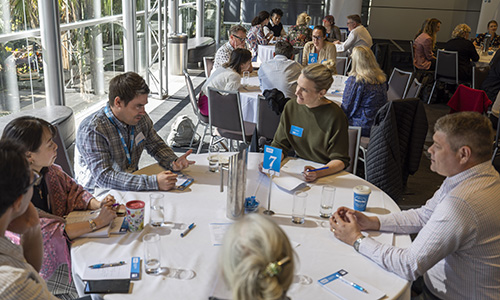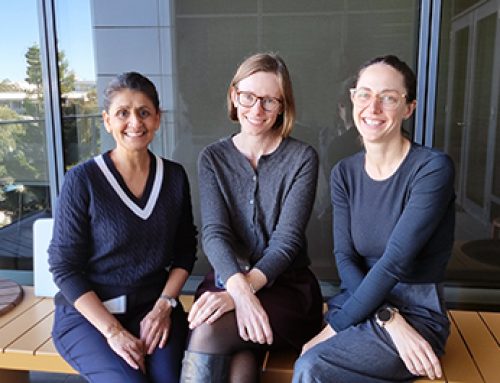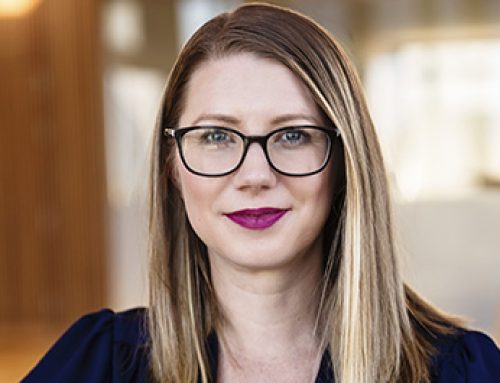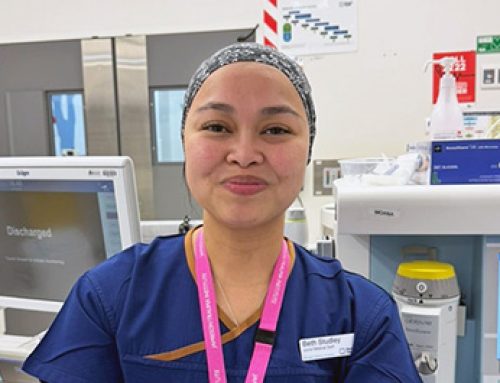Here’s what we’ve learnt about addressing the rising burden of liver disease
Liver disease affects up to 1 in 3 Australian adults, and costs Australia upwards of $51 billion each year. While this burden on our health system continues to grow, the majority of liver disease is preventable.
On Monday 8 May, AusHSI and researchers from the LOCATE-NAFLD project were proud to host the event Addressing the rising burden of liver disease in Australia through collaboration and innovation.
Held at QUT’s Garden’s Theatre Foyer, the event brought together a range of stakeholders including clinicians, researchers, nurses, students and advocates for better liver health. The focus of the day was not only on the increasing burden of non-alcoholic fatty liver disease, but also problems such the impact of alcohol, insufficient awareness and education, and lack of access to screening services.
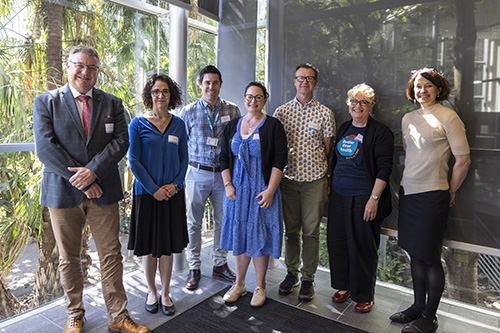
(L-R) Prof. James O’Beirne, Prof. Patricia Valery, Dr David Brain, Lana Richardson, Prof. Adrian Barnett, Jeanette Tibbs, Prof. Elizabeth Powell
Professor James O’Beirne, Director of Gastroenterology at the Sunshine Coast University Hospital, facilitated the day, and opened proceedings with an overview of the impact liver disease is having both in his hospital and in Australia.
Professor Elizabeth Powell – Eminent Staff Specialist in Hepatology (Princess Alexandra Hospital), Director of the Centre for Liver Disease Research (UQ) and Clinical Director (QIMR Berghofer Medical Research Institute) – chaired the first session of the day ‘The burden of liver disease: Latest evidence and research’. LOCATE-NAFLD Chief Investigator Professor Adrian Barnett provided attendees with an overview of the progress and aims of the trial, and investigator Dr David Brain shared the results of a discrete choice experiment which is helping researchers understand consumer preferences for community-based health screening programs.
Professor Patricia Valery (QIMR Berghofer Medical Research Institute) shared the results of their data linkage study, reporting outcomes for patients with NAFLD-related cirrhosis and type 2 diabetes. The session ended with representatives from Hepatitis Queensland, the state-based peak body for viral hepatitis and liver health, sharing their mission and aims for improving liver health through advocacy, education, and community screening services.
Perhaps the most important session of the day, the second session brought all attendees together in a World Cafe discussion, where AusHSI facilitators provide everyone with an opportunity to draw on their knowledge and experiences to discuss some of the barriers and solutions to the growing burden of liver disease in Australia.
Five topics were covered during the session:
- Awareness of liver disease in the general population
- Awareness and education of General Practitioners
- Ease of access to/over usage of alcohol
- Funding/cost barriers
- Accessibility and awareness of services for management and support after diagnosis
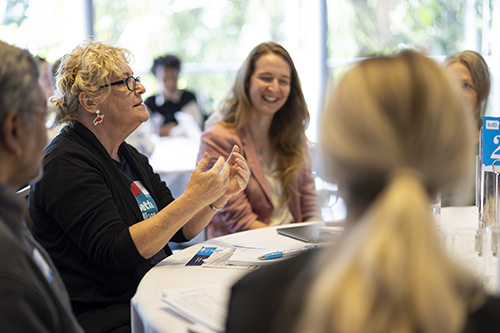
Attendees brought enthusiasm to the discussion and generated a large number of ideas and suggestions, which were then taken to the panel in the final session.
The panel, consisting of Professor Powell and Professor Valery, along with Jeanette Tibbs (community nurse from Hepatitis Queensland) and Sarah Higgins (CNC from the Sunshine Coast University Hospital’s hepatology department), and chaired by Professor O’Beirne, reflected on the outcomes of the World Cafe, and provided opportunities for attendees to comment.
The event was an enjoyable day of networking and sharing knowledge and research, and provided AusHSI researchers with valuable insights into what stakeholders believe can be done to begin addressing some of the key issues in this area. AusHSI will be producing a report outlining these insights in the coming months, which will be distributed to attendees, policy makers and advocacy groups.
The outcomes of this event, and the research conducted by the LOCATE-NAFLD team, will provide strong evidence to support better funding, increased awareness, and improved patient outcomes for those living with liver disease in Australia.
To find out more about the outcomes of the event, or to request a copy of the report outlining the recommendations from the World Cafe, contact Dr David Brain at David.Brain@qut.edu.au.
